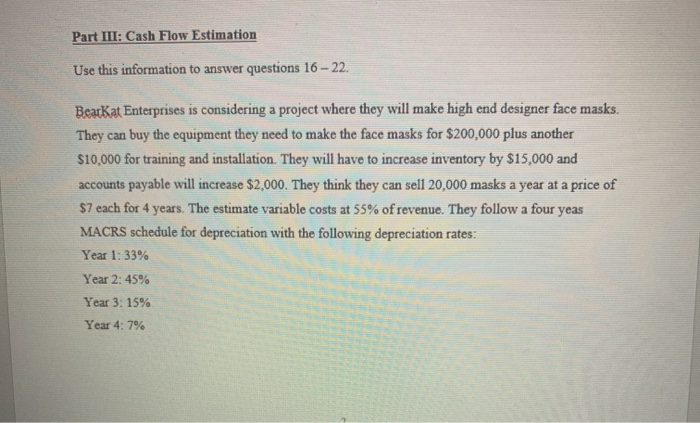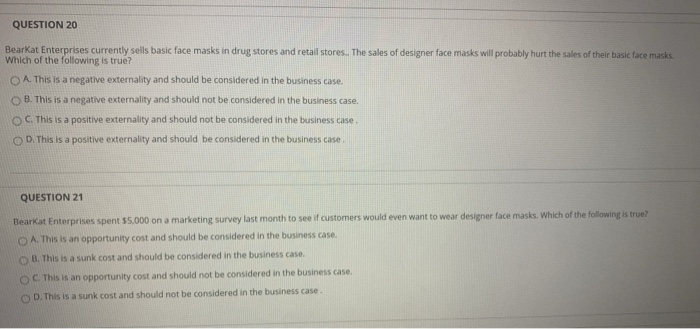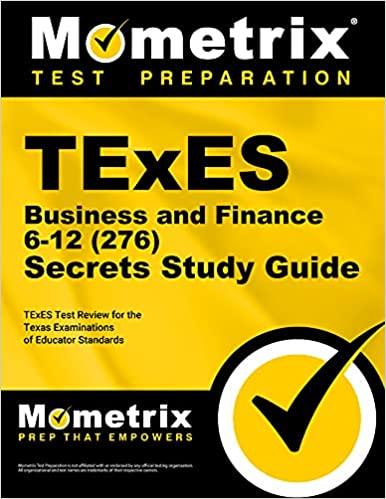Part III: Cash Flow Estimation Use this information to answer questions 16 - 22. BearKat Enterprises is considering a project where they will make high end designer face masks. They can buy the equipment they need to make the face masks for $200,000 plus another $10,000 for training and installation. They will have to increase inventory by $15,000 and accounts payable will increase $2,000. They think they can sell 20,000 masks a year at a price of $7 each for 4 years. The estimate variable costs at 55% of revenue. They follow a four yeas MACRS schedule for depreciation with the following depreciation rates: Year 1: 33% Year 2: 45% Year 3: 15% Year 4: 7% QUESTION 20 Bearkat Enterprises currently sells basic face masks in drug stores and retail stores. The sales of designer face masks will probably hurt the sales of their basic face masks. Which of the following is true? O A. This is a negative externality and should be considered in the business case. OB. This is a negative externality and should not be considered in the business case. OC. This is a positive externality and should not be considered in the business case OD. This is a positive externality and should be considered in the business case QUESTION 21 BearKat Enterprises spent 55.000 on a marketing survey last month to see if customers would even want to wear designer face masks. Which of the following is true? O A. This is an opportunity cost and should be considered in the business case. B. This is a sunk cost and should be considered in the business case. OC. This is an opportunity cost and should not be considered in the business case. OD. This is a sunk cost and should not be considered in the business case QUESTION 22 Bearkat Enterprises has a higher cost of common equity than most companies in the face mask business. Which of the following is true? A. The business case needs to be adjusted for the cost of capital OB. The business case is evaluated using NPV or IRR which already considers the cost of capital in the calculation or evaluation so no adjustment needed. OC. The cost of common equity is not relevant to business cases D. The cost of common equity is considered a flotation cost









